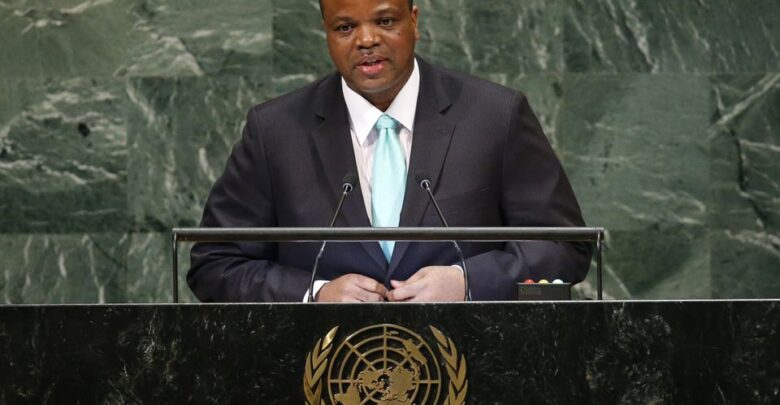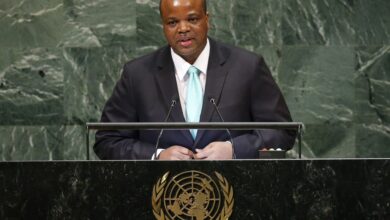Eswatini
Eswatini’s King Mswati Agrees To Set Up National Forum To Solve Ongoing Crisis

Eswatini’s King Mswati has agreed to establish a national dialogue forum to resolve the intensifying protests in the country, South African President Cyril Ramaphosa said, reported The BBC.
The statement comes after Ramaphosa, who currently chairs the security organ of the Southern African Development Committee (SADC), met with the king in his palace to discuss the political and security developments in Eswatini.
A statement released by Pretoria stated that the meeting between Ramaphosa and the king resolved that the Kingdom of Eswatini will embark on a process that will work towards the establishment of a national dialogue forum.
The statement said that preparations for the dialogue will take place over the next three months, a period during which the king will undertake his annual, mandatory retreat.
The meeting follows several violent clashes between Eswatini’s security forces and pro-democracy activists. The clashes, which first erupted in June, have resulted in the deaths of nearly 40 people.
Demonstrations flared up last month after security forces loyal to King Mswati tried to prevent activists from violent demonstrations. Internet connectivity in the nation was shut down after protest images circulated on social media.
King Mswati ordered the closure of schools after students boycotted lessons, demanded free education and an ending of the king’s rule.
South African President Ramaphosa and Eswatini’s king called on the people to put an end to violence and maintain peace.
Earlier on Tuesday, the Human Rights Watch called for an independent probe into the crackdown on the demonstrations. The rights group claimed that 46 people were killed in June while at least 245 others suffered gunshot wounds, citing a recent report by a local rights group.
Notably, King Mswati III has ruled Eswatini, formerly known as Swaziland, since 1986. He is criticized for living a lavish lifestyle and is also accused of stifling political parties.



